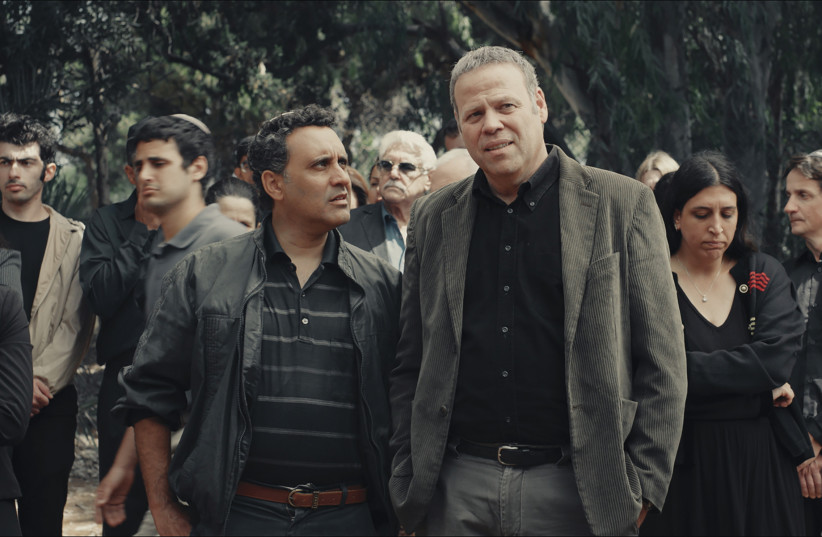The Israeli Academy of Film and Television just announced its nominees for the Ophir Awards, to be awarded in a ceremony on September 10, and the list features the usual surprises and snubs.
Through a quirk in the nominating process, movies that have not yet been released can be nominated and there is usually a time lag of months, even years, before many nominees hit theaters. At the same time, some movies that have been released recently are not on the list of eligible films, such as Amit Ulman’s wonderful musical, The City, so the process is complicated.
The five movies that did get nominated feature diverse themes. Home, directed by Benny Fredman, tells the story of a young ultra-Orthodox man who opens a computer store serving a haredi neighborhood and finds himself threatened by those who want to keep technology and the Internet away from the community.
Dani Rosenberg’s The Vanishing Soldier, which will soon have its world premiere at the Locarno Film Festival – currently underway – is about a soldier who flees a battle in Gaza and secretly heads back to Tel Aviv, while his commanders are certain he was taken prisoner. Maayan Rypp’s The Other Widow focuses on a costume designer at a Tel Aviv theater who cannot grieve openly when her married playwright lover dies suddenly.
Adar Shafran’s Running on Sand is about an Eritrean refugee about to be deported from Israel who is able to flee and ends up being mistaken for a struggling soccer team’s new foreign player. Ayelet Menahemi’s Seven Blessings tells the story of a bride-to-be from a Moroccan family, who was given to her infertile aunt when she was a young child, who returns to Israel for her wedding and unravels family secrets. It was co-written by its star, Reymonde Amsallem.

Other films and nominees
Three excellent films which did not make the Best Picture cut this year are Avi Nesher’s The Monkey House, Matan Yair’s A Room of His Own, and Ofir Raul Graizer’s America, although Nesher and Yair are nominated in the Best Director category, and Yair also received a nomination for Best Screenplay.
Among the nominees for Best Actor are Sasson Gabay, for his performance as a father trying to help his troubled daughter living in Paris in Eitan Green’s My Daughter My Love, which also received a Best Screenplay nod for Green, and Dror Keren for Ron Ninio’s Tor Preida (“Farewell Column”), in which he plays a columnist who receives threats against his autistic son, while his daughter is protesting against the prime minister.
Roy Nik is nominated for playing a Haredi man fighting to keep his computer shop open in Home; and Michael Moshonov, for his portrayal of a troubled young man who returns to Israel after his father’s death, in the movie, America; Ido Tako’s performance as a soldier who goes AWOL in The Vanishing Soldier gets him on the list too.
Two fine performances that did not make the list are Adir Miller’s turn as a vain, forgotten novelist in The Monkey House and Gilad Lederman as a troubled teen in A Room of His Own.
In the Best Actress category, Reymonde Amsallem is nominated twice, once for Seven Blessings and a second time for her performance as a criminal profiler in Noam Kaplan’s The Future. The other nominees in this category are Suzanna Papian for her role as a young actress in The Monkey House; Oshrat Ingadashet, who plays a florist in America; and Dana Ivgy as a grief-stricken lover in The Other Widow. If Ivgy wins, she will become the actress with the most Ophirs, since she has won Best Actress twice, for Or and Zero Motivation, and Best Supporting Actress Ophir for Next to Her.
In the supporting actor category, Ala Dakka is nominated for The Monkey House, Ezra Dagan for Delegation, Dror Keren for Home, Albert Ilouz for My Daughter My Love, and Maor Schwitzer for Matchmaking. The Supporting Actress nominees are Shani Cohen for The Monkey House, a first nomination for this popular actress; Ania Bukstein for The Other Widow; Tiki Dayan for Seven Blessings; Efrat Ben-Zur for The Vanished Soldier; and Samar Qupty for The Future.
The winner of the Ophir Award for Best Movie becomes Israel’s official selection for consideration for a Best International Feature nomination (in a category previously known as Best Foreign Language Film). Israel has had 10 nominations without a win in this category, the most of any country, and has not had a nominee since 2012. No Israeli film has made the shortlist since 2017. It will be interesting to see if this year’s Ophir winner is able to break through.
